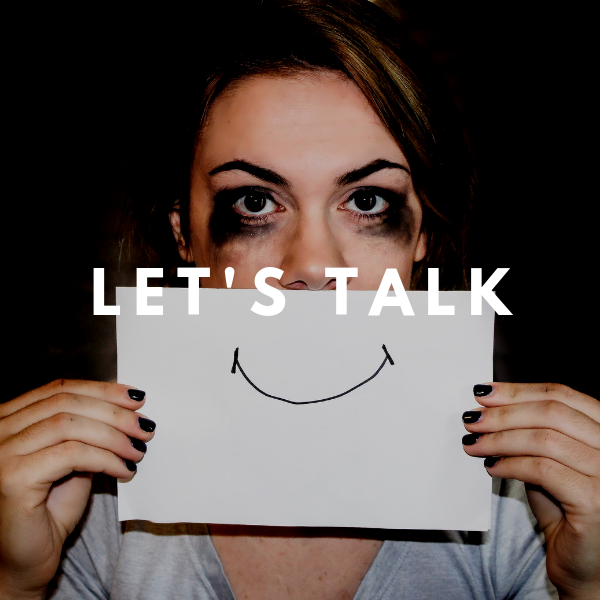Author: Rajlakshmi Sohini Mukhopadhyay
It’s raining cats and dogs outside, but we don’t care. My friend and I are all cosied up, drinking cups of tea and having a good old heart-to-heart about times gone by.
“You know, I just didn’t know where to go. I knew what I was feeling wasn’t right but I didn’t want anyone to think I was crazy or something!”.
I knew exactly what she meant.

Mental health illnesses have a bad reputation. People refuse to admit when they require help due to a number of myths and the stigma surrounding the issue of mental health. In fact, mental health issues have a huge range and affect far more people than we think.
The World Health Organisation says that one in four people worldwide are affected by mental or neurological disorders at some point in their life.
Three out four people have felt so upset or stressed at some point of their lives that they have felt unable to cope and two out of three people experience a mental health problem at some point in their lives.
While treatments are often effective and widely available, people who suffer often don’t seek help from a professional. This is mostly due to stigma and a lack of understanding. People assume that if they have a mental health issue or if someone they know does, then it binds them for life and that they cannot get rid of it, no matter how much they try.
People with mental health illnesses also often blame themselves or are blamed by other people for talking about how they feel. This means that the people affected can’t actually feel comfortable talking even to those who are close to them.

But how can you help someone who you think might be struggling or how can you help yourself if you’re in this position? Here are our 9 top tips!
1. Educate yourself
If you know the facts about mental health, you can help yourself better, educate other people too and also support those around you who need your help. Check out this link to make sure you bust those myths surrounding mental health!
https://www.pathstonementalhealth.ca/mental-health/myths-about-mental-health
2. Re-evaluate
Try to think about what might be causing the stress and how you can manage it differently. If you need some help doing this, speak to people who you feel might understand or seek professional help.
3. Exercise
Exercise is a proven way to combat stress and can help to balance life. Depression can often manifest physically by causing sleep disturbances, fatigue and a lack of appetite. However, getting started with exercise can help long-term with alleviating symptoms.
4. Watch what you say
When talking to people with mental health issues, be careful of what you say and how you say it. Something, which you might think is just a passing comment, could in fact be far more harmful than you think!
5. Be aware
We all have different prejudices and ways of thinking. Sometimes, though, we forget that every person is different and that we shouldn’t put people into boxes. Make sure you don’t let your prejudices and behaviour affect others.
6. Be inclusive
Often mental health issues, as well as stress, can make a person feel incredibly alone. You never know when that friendly chat could really have made someone’s day.
7. Be positive
Don’t assume that just because someone has a mental health issue or is stressed out, that they cannot contribute to society. If that were the case, we wouldn’t have some of our greatest inventions or discoveries such as the Origin of the Species, Newton’s Laws, the Nash Equilibrium and wireless technology!
8. Don’t blame yourself or others
Although it may feel like it at times, remember that mental illness is not a personal failure. People with mental health issues are not always responsible for their thoughts so don’t put them down for feeling the way that they do.
9. Seek help
Our most important top tip is to seek help. If you feel like you need even a bit of help, there is no shame in going to a professional to speak to them. If you’re noticing that someone you are close to needs help, encourage them to seek it and extend your support. Don’t forget that professionals are bound to confidentiality and so what you say to them, stays with them.
Read More
Sources
Article sources:
[1] USC Suzanne Dworak-Peck School of Social Work Points of Distinction. (2017, May 23). 15 Mental Health Facts You Should Know.Retrieved from: https://dworakpeck.usc.edu/blog/15-mental-health-facts-you-should-know [2] World Health Organization. World Mental Health Day – 10 October. Retrieved from: http://www.who.int/mental_health/world-mental-health-day/en/ [3] Mental Health Foundation. What is mental health?Retrieved from: https://www.mentalhealth.org.uk/your-mental-health/about-mental-health/what-mental-health [4] Mend the Mind. (2017). Seven Important things we can do to reduce Stigma and Discrimination. Retrieved from: https://www.mendthemind.ca/stigma/seven-important-things-we-can-do-reduce-stigma-and-discrimination/ [5] The Discovery Spot. (2013, October 8). 10 World-Changing Geniuses Who Suffered from Mental Illnesses. Retrieved from: https://discoveryspot.wordpress.com/2013/10/08/10-world-changing-geniuses-who-suffered-from-mental-illnesses/Photo sources:
[1] Mishra, H. (2017, October 1). Tea amid the rain. The Hindu. Retrieved from: https://www.thehindu.com/opinion/open-page/tea-amid-the-rain/article19778100.ece [2] Kazmi, S. B. (2018, April 18). The compromise on mental health. Daily Times. Retrieved from: https://dailytimes.com.pk/229479/the-compromise-on-mental-health/ [3] Local Directory. SEVEN TOP TIPS FOR CREATING PRINT ADS. Retrieved from: https://localdirectoryltd.co.uk/2017/11/seven-top-tips-for-creating-print-ads/


39 replies on “ Breaking the stigma behind mental illness ”
Comments are closed.